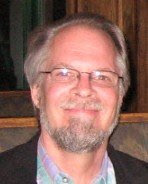Among the industrialized democracies, this level of belief in hell is uniquely American. European countries usually poll around 10-20% for belief in hell. America is truly different in this particular way.
Apparently the readers of my blog do not agree with the majority position on this question. Not a single person out of 45 respondents to my unscientific poll voted Yes for the traditional view.
Among the other choices that I offered, 71% of voters picked the simple, straightforward choice that hell is not real. About 40% say hell is real, but only in our minds. About 13% think hell is real, but only on this earth, a view that Dr. Martin Luther King Jr. expressed in Ebony magazine 48 years ago. The numbers do not add up to 100% because voting for more than one option was allowed.
Does any of this matter? I think religious beliefs influence the way we weave our social fabric. For example, in the current debate over health care, it is clear that Americans view this issue very differently from the rest of the industrialized world. Something that seems completely normal and natural to most of the world, namely universal health care, seems to be extraordinarily upsetting to many Americans. This reaction is too extreme and too visceral to be simply a matter of economics. People react to this idea as if it were the end of American civilization. Something else is going on beneath the surface.
I believe that part of our uniquely American and deeply troubling response to the possibility of universal health care has to do with religion. From the Calvinism of the pilgrims to the evangelicalism of the religious right, our society has long harbored an unconscious tendency to see the human family as split, divided by God into the saved and the damned, God's people and the outsiders. That is what the hell story is all about. Some will win and others will lose in life.
When you mix this deeply divisive religious component of our culture with the extreme individualism of the pioneer movement and the insensitivity of unregulated capitalism, you get a society that distrusts any idea or program that seeks to serve all the people without dividing them into winners and losers. The uniquely high level of belief in hell in America is one of the components of our deep suspicion of universal solutions to anything.
This divided way of looking at the world may have worked, or appeared to work, on the frontier, at least if one were not a Native American or an African slave. But in the 21st century, characterized by interdependence and the need for cooperation, it is a formula for failure, both moral and economic. It is time for us to change. Do you agree?
Among the other choices that I offered, 71% of voters picked the simple, straightforward choice that hell is not real. About 40% say hell is real, but only in our minds. About 13% think hell is real, but only on this earth, a view that Dr. Martin Luther King Jr. expressed in Ebony magazine 48 years ago. The numbers do not add up to 100% because voting for more than one option was allowed.
Does any of this matter? I think religious beliefs influence the way we weave our social fabric. For example, in the current debate over health care, it is clear that Americans view this issue very differently from the rest of the industrialized world. Something that seems completely normal and natural to most of the world, namely universal health care, seems to be extraordinarily upsetting to many Americans. This reaction is too extreme and too visceral to be simply a matter of economics. People react to this idea as if it were the end of American civilization. Something else is going on beneath the surface.
I believe that part of our uniquely American and deeply troubling response to the possibility of universal health care has to do with religion. From the Calvinism of the pilgrims to the evangelicalism of the religious right, our society has long harbored an unconscious tendency to see the human family as split, divided by God into the saved and the damned, God's people and the outsiders. That is what the hell story is all about. Some will win and others will lose in life.
When you mix this deeply divisive religious component of our culture with the extreme individualism of the pioneer movement and the insensitivity of unregulated capitalism, you get a society that distrusts any idea or program that seeks to serve all the people without dividing them into winners and losers. The uniquely high level of belief in hell in America is one of the components of our deep suspicion of universal solutions to anything.
This divided way of looking at the world may have worked, or appeared to work, on the frontier, at least if one were not a Native American or an African slave. But in the 21st century, characterized by interdependence and the need for cooperation, it is a formula for failure, both moral and economic. It is time for us to change. Do you agree?



